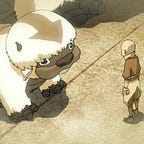WP2: The Storyteller
Initially, I was hesitant to archive video games, of all things, in preparation for an intellectual autobiography. The concept felt taboo to me: they’re generally made out by society to be nothing more than distractions, unhealthily pulling me away from real growth or meaningful learning. And, for much of my life, I believed it. As a kid, I felt guilty playing them, knowing that my peers and intellectual “equals” (many of whom are now engineering or computer science majors at other prestigious universities) were spending hours learning how to code, or learning complex algebra years before it was necessary.
But in recent years, I’ve learned to abandon that mindset. Sure, I should always prioritize schoolwork or “real-life” responsibilities, but learning narrative linearity (or lack thereof) through atypical media is absolutely a respectable method of growth. It’s unique, it’s individual, and I shouldn’t downplay its effect on my academic development.
As an actor, my job is to believably tell a coherent and compelling story. The strength of my portrayal of a character is contingent on my understanding of the human condition, and the emotional responses a person has to various plot devices or messages.
With this in mind, my archive consists of an overview of the biggest influences that games have had on my narrative ability, from childhood to present day. I’ve examined and documented my journey and how it’s influenced my current interests and sense of self through a biographical podcast-interview, and a focused analysis of two games in particular that have shaped my understanding of powerful storytelling in recent years.
After all, my intellectual identity isn’t exclusive to one label. I am an actor, a video game hobbyist, a conceptual developer. But above all, I want to be a storyteller.
